It was no ordinary feat that Hyderabad’s last King of the Asafjahi Dynasy, Mir Osman Ali Khan, the seventh Nizam, was in the good looks of the British India running Hyderabad government with its own currency and railways. Having saved immeasurable wealth in England, maintaining links with Pakistan, he gave stiff resistance to the independent Indian government till the famous Police Action leading to be merged with the Indian union on September 17, 1948, known as the Hyderabad liberation day. But, as kings often neglected, the people were subjected to looting, rape, killing by the rajakars, militia of the MIM. To term their atrocities excesses would be making an understatement. To protect themselves and their women, the people formed dalams, squad to fight the razakars. A member of such dalams, Narayana Rao pawar (1925-2010), who passed away recently, mustered courage to plot to kill none other than the King by throwing a bomb at the Niazm. This is an account, in his own words as narrated to Paravastu Lokeswar and translated by K. Purushotham, of how he planned the otherwise impossible task.
Narayan Rao Pawar (1925 – 2010) was an Indian freedom fighter and member of Arya Samaj. He became popular after plotting to kill the Last Nizam of Hyderabad, Mir Osman Ali Khan. Pawar along with two others (Jagadish Arya and Gandaiah Arya), hurled a bomb at the Nizam VII on 4 December 1947 near his King Koti palace. The sessions court awarded him death sentence, but was freed after the Police Action in 1948.
‘sar katasakthe hai lekin sar juka sakte nahi’
PERSONAL NARRATIVE: NARAYANARAO PAWAR
I was born on October 3, 1926 in a basti, street at the Govindarajula temple hillock near Warangal railway station. My mother died when I was four. My naayina, father didn’t marry again fearing that we might be ill-treated. I passed inter in 1944. I wanted to go to Hyderabad for a two year law degree. The classes used to be held in the evening at the High Court premises. But as my naayina expressed helplessness to educate me, I earned some money working as an enumerator in a ration shop at Warangal. Then I joined in the law course in Hyderabad.
I got acquainted with Aryasamaj while studying in the eighth standard. Pundit Rudradev and Pundit Narendradev were our guruvulu, teachers. We used to work against the conversions. We ran night schools in the Harijan bastis. My naayina used to scold me for mingling with malas and madigas. He would order me to put off the clothes outside, bathe and then enter the house to cleanse the pollution. Without answering him, I would oblige him silently and read aloud Gandhi’s message about untouchability. This, repeated several times, he changed his mind, and stopped reprimanding me.
We founded ‘Arya Yuva Krantidal.’ Pundit Vishwanath, Reddy Pochanandam (residents of Gun Foundry), G. Narayanaswamy (railway laborour at Lalaguda), Balkishan (tailor), Gundaia (Modern Hair Saloon, Sultan Bazar), Jagdish (resident of a village at Shamshabad) and I were the members. Konda Laxman used to be the advisor and financier to our dalam, squad.
I used to be a tutor to Balkishan’s brother. We became friends. He gave me a room free of rent in return to the tuition fee. Later on, Balkishan took part in the revolutionary activities because of me. We used to discuss in my room politics late till midnight. The British government banned Shaheedi ki Toli, (the immortal squad) in British India. Balkishan secretly brought a copy from Rajastan. We all read it twice. The book immensely influenced us. Later on the book shaped our revolutionary life.
Balkishan and I disguised as Muslims to listen to the speech of Mohammed Ali Jinnah in the grounds of Darusala in 1946. Having listened to his provocative speech, we vowed to ourselves on the spot to die rather than to live without self respect. We didn’t yet get the idea of dropping a bomb on Nizam (Mir Osman Ali Khan, the VII Nizam). But we strongly resolved to do something decisive.
There used to be Udai Cloth Stores opposite Dilshad Talkies owned by Devayya. We used to hold our secret night meetings upstairs of the shop. Bhishmadev used to come from the Old City. He was subsequently elected to Loksabha in 1971 representing Telangana Praja Samiti.
One evening I was going to attend the law classes at the High Court. Balkishan too accompanied me to know how the classes were like. When we had reached the junction of Nayapool, they stopped the traffic. We were held back. Every evening, the Nizam would pass through the rout to visit his mother’s tomb at Dar-ul-shifa. They would stop the traffic at the time. We saw the Nizam, who was going by his car. I told my friend at once, unpremeditated, that it was better to kill the Nizam. He didn’t say anything. I forgot what I had said the next moment.
After ten fifteen days when we had met at Udai cloth stores, my friend Balkishan reminded me of our resolve to kill the Nizam. We all expressed readiness. Then we chalked out a plan of action.
We used to read keenly the speeches of Netaji Subhashchandra Bose. His slogan, ‘Give me your blood, I will give you freedom,’ electrified us. Influenced, we decided to kill the Nizam by hurling bombs, and be ready even to sacrifice our lives.
It was decided that Pundit Vishvanath and I should go to Bombay for buying bombs. We stopped at Solapur to visit the refugees, who had arrived from Hyderabad. We met Konda Laxman there. He was already working as a criminal lawyer. When he asked us why we needed bombs, we lied that we needed them to face the rajakars. When he asked us why not kill the Nizam, we disclosed him of our intention. He helped us with six hundred rupees for buying bombs. Pundit Narendraji told us in advance where to buy the bombs in Bombay. He used to bring bombs to Hyderabad from there. We met Deekshit Maharaj, a Gujarati Brahmin and bought two bombs from him. On our way back, we met Konda Laxman at Solapur. We also asked him to provide three revolvers. Our idea was to attack the Nizam with the revolvers in case the bombs failed. He gave us revolvers too. Finally we asked him for three bottles of poison. He could understand the purpose. Thinking that it is better to die rather than disclose the secrets as captives, he gave us three bottles of poison too.
On reaching Hyderabad, I prepared a detailed text of pledge. Its essence was to explain why we planned to kill the Nizam. I left a copy of the text with Narayana Swami. I ordered him to give the text and a photograph of the three of us to the press and radio on the day when we would execute the plan. We signed the text in blood.
We three – Jagdish, Gundaiah and I – were standing a bit away from King Kothi road in the evening of Dec 4, 1947. I was in the middle. I was to attack the Nizam. We planned it in such a way that in case the car escaped my attack, Jagdish should attack when the car passes past me; Gundaiah if the car was behind. At every galli, street and at every junction, a traffic and civil police each were there. The former watching the traffic and the latter keeping a vigil on the people in the galli. The police noticed when I ran across the road advancing towards the car, my bicycle parked against a wall. I took the bomb, pulled out the pin and threw at the Nizam’s car. Blasted with bang, it formed a big ditch on the road. A young girl died on the spot and three were wounded. But the Nizam’s car could escape. When I was taking the revolver out of my pocket, the javaan, police held me past by my hand. I could not get even the chance of drinking poison. Both my friends escaped from there thinking that I was successful in my bid. Lest that could have been the last day for the Nizam.
Then the people and the jawans around thrashed me indiscriminately with canes, stones, chappal. My teeth fell down when a certain fellow beat me on the mouth with a stone. There was a doctor’s house at the site where I threw the bomb. The driver cleverly drove into the doctor’s house, and later drove back to King Koti. The first witness to my throwing the bomb was the watchman of that house. He was an Arab. When he came forward to kill me with his barcha, ‘Don’t kill him; he should be killed after knowing the secrets.’ He held his palm against his barcha. His palm was wounded. The watchman gave the first witness in the court.
They took me to the police outpost at the King Koti, thrashing me. They questioned me, ‘Thera naam kya hai (what’s your name?) I answered, ‘Babu,’ as decided, so that my identity, whether Hindu or Muslim, would not be known. They stripped me to find out what my religion was. They determined that I was a Hindu since khathna, circumcision was not performed. Prime Minister Mir Laik Ali came there even as they were thrashing me. He questioned me if I was sent by Sardar Vallabhai patel or any of the Royal family instigated me. I answered in one word that I had done it on my own. With desiccated blood in my mouth, when I struggled to utter ‘thirsty,’ a jawan handed me a glass filling it with his urine. Another fellow spat on my face saying, ‘khafir,’ unbeliever, They stood me all through the night. I had to stand keeping my arms up. When the arms came down or if I collapsed on the floor, the jawans on either side thrashed on my knees and heels. They subjected me to varied forms of violence for two days. Gundaiah was seen in the cell opposite mine on the third day. I understood that he too was arrested. We learnt later on that the police could trace out our identity taking a hint from the name of the cycle taxi engraved on the handle of the cycle.
The following morning, the police searched my house in Warangal. They dug the floor to know if we hid any bombs or weapons in the ground. My naayina was surprised. He did never imagine I would venture to do such a thing in my life. The police brought my naayina to Hyderabad for confirming my identity. He told the police that I was his son. He didn’t scold nor did reprimand me. He asked me to be resilient enough saying that the god would come to my rescue.
He used to meet me in the premisis of the court during the hearing. He would bring me sweets. He seemed like a sage with grown up hair and beard, which he would offer to god Vithal at Pandaripur on my release.
I told them the essence of the pledge I had taken. I did not appoint any advocate. I argued the case myself.
Finally, the court passed death sentence. I was overjoyed with pride. ‘sar katasakthe hai lekin sar juka sakte nahi’ (may behead one, but not bow one’s head) recited the lines from the poetry of Pundit Ramprasad Bismil.
After the Police Action of September 17, 1948, I was released.
Based on an interview with Paravasthu Lokeshwar
Published in the Sunday magazine, Andhra Jyoti, 23 Jan, 2011
Translated by K. Purushotham

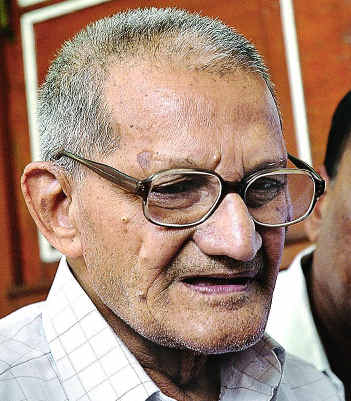


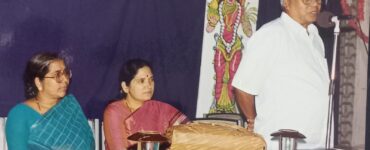
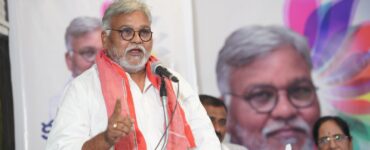
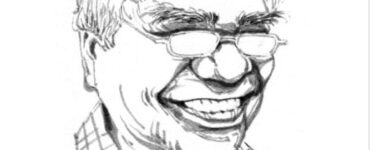
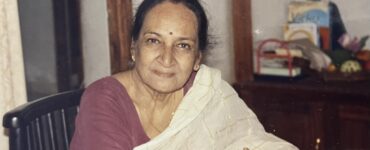

Add comment